Russians seek refuge in neighboring Georgia to avoid war draft: 'My mother actually thinks that I betrayed my country'
TBILISI, Georgia — Towering over Georgia’s capital city is a 65-foot aluminum statue that stands as a symbol for the inhabitants below. In one hand, the “Mother of Georgia” holds a cup of wine to greet the country’s guests, illustrating the ever-present hospitality its citizens are known for.
In the other, a sword, demonstrating Georgia’s readiness to defend itself against those who come as enemies. At no time has this figure been more indicative of the country’s relations with its northern neighbor than during the current immigration situation Georgia faces.
Russians are now seeking refuge in neighboring countries such as Kazakhstan, Mongolia and Georgia after many Western countries closed their borders to those fleeing Russia. In just one week last month, Georgia’s Interior Ministry registered 68,887 Russians having entered the country. Aerial images taken at the Georgia-Russia border in September appeared chaotic, with military-age men and their families lining up for days, some without food or water. Flight prices skyrocketed, and rent for apartments in Tbilisi nearly doubled, forcing some students to drop out of school, as they were unable to afford the new high cost of living.
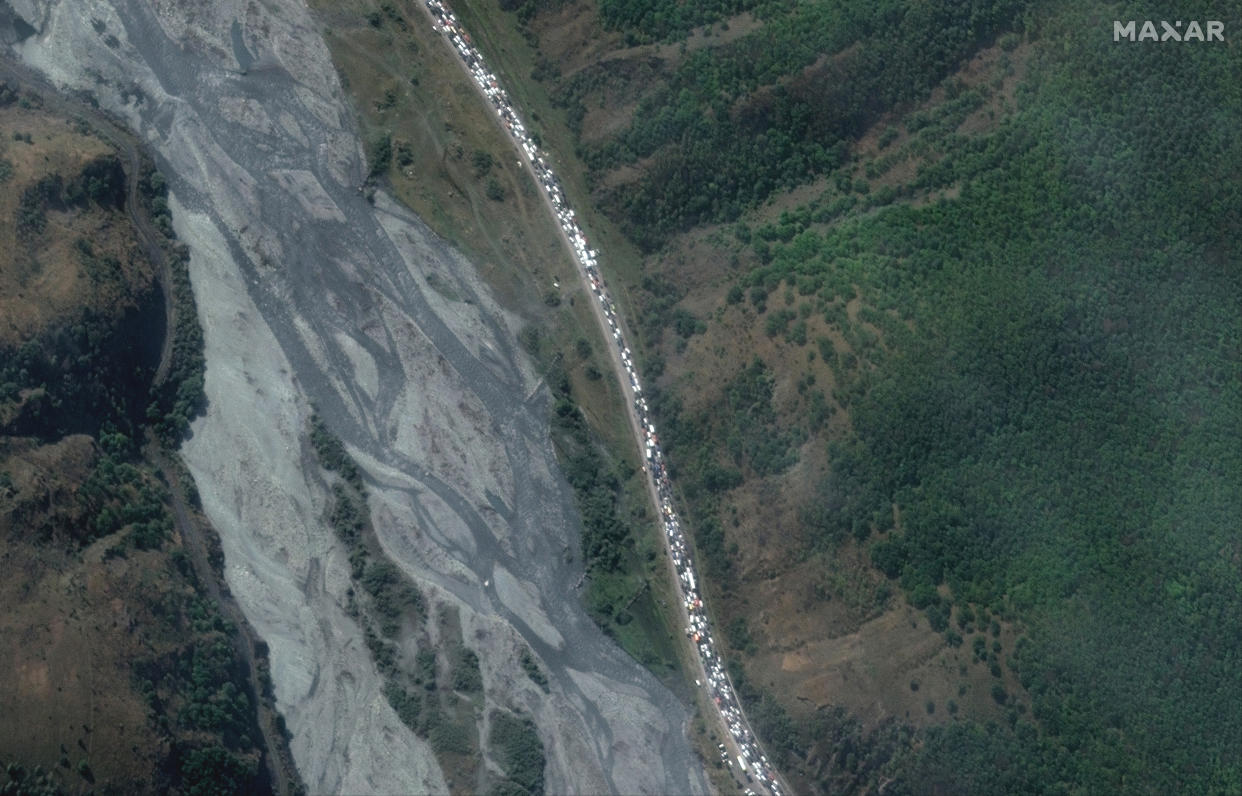
This mass migration followed Russian President Vladimir Putin’s announcement of “partial” mobilization on Sept. 21. “I reiterate, we are talking about partial mobilization, that is, only citizens who are currently in the reserve will be subject to conscription, and above all, those who served in the armed forces have a certain military specialty and relevant experience,” Putin said in a televised address. Up to 300,000 reserves were called upon by the Kremlin leader to help “consolidate” Russia’s four occupied territories in eastern Ukraine.
Reports still vary on the exact number of people who left Russia in the weeks after Putin’s declaration. One Kremlin source told Forbes earlier this month that 700,000 had fled since the order was made. Kremlin spokesperson Dmitry Peskov, however, quickly refuted the claim. “I don’t think those numbers should be taken seriously,” he told reporters. “I don’t have exact figures, but of course, they are far from what’s being claimed there.”
Selena Valyavkina, a Russian psychologist now living in Tbilisi, was one of the earlier group of people who arrived in February. “When the war happened it was just impossible to stay any longer,” she told Yahoo News. “I think the main reason behind why I left is that I’ve noticed that many people really [didn’t] care about what was happening.” After news of the war broke, Valyavkina packed all her belongings in St. Petersburg and left for Georgia.
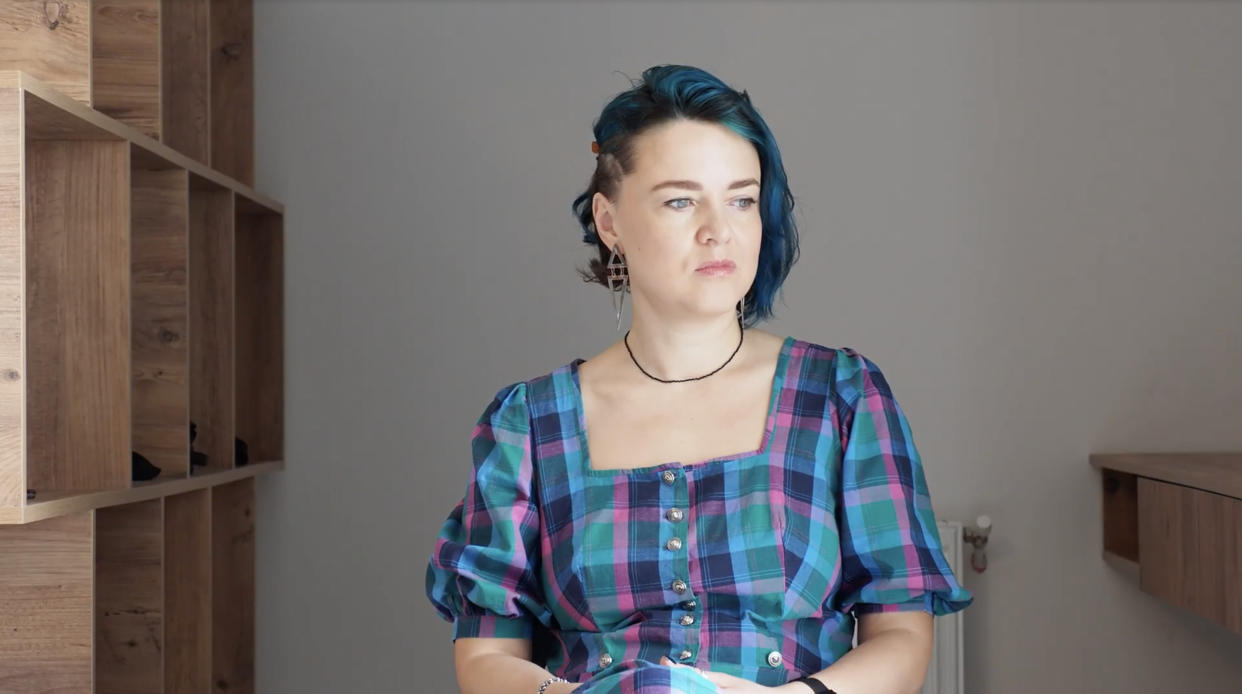
“Inside Russia, I got some messages that I am like a rat running from a sinking ship and that I betrayed Mother Russia,” Valyavkina said. “My mother actually thinks that I betrayed my country and her.”
Over the past number of years, Valyavkina became the target of house searches for her anti-Putin stance and her attendance at antigovernment demonstrations. Another time, she said, she arrived to vote in a local election and saw that her vote had already been cast. She contacted the police, but nothing was resolved. “You live with the understanding that anytime, they can show up at your door, do whatever, and there will be no one to complain [to],” she said.
News of Russians seeking refuge in Georgia sparked protests at the border as well as in cities around the country. In Tbilisi, activist Nika Parulava told Yahoo News that the “mass arrival of citizens of Russia to Georgia” was a “national security” issue.
“It’s a threat to every citizen of Georgia,” he said.
Ulianin Mykhailo, a refugee from Kharkiv, Ukraine, said he feels unsafe now that Russian migrants have been flooding into the city after the draft’s announcement, adding that Georgians should be worried, as they do not know who is being allowed to enter the country. “All this time during these eight months they lived in Russia, and every single one was fine,” Mykhailo said. “They silently support this war, they support their government.”
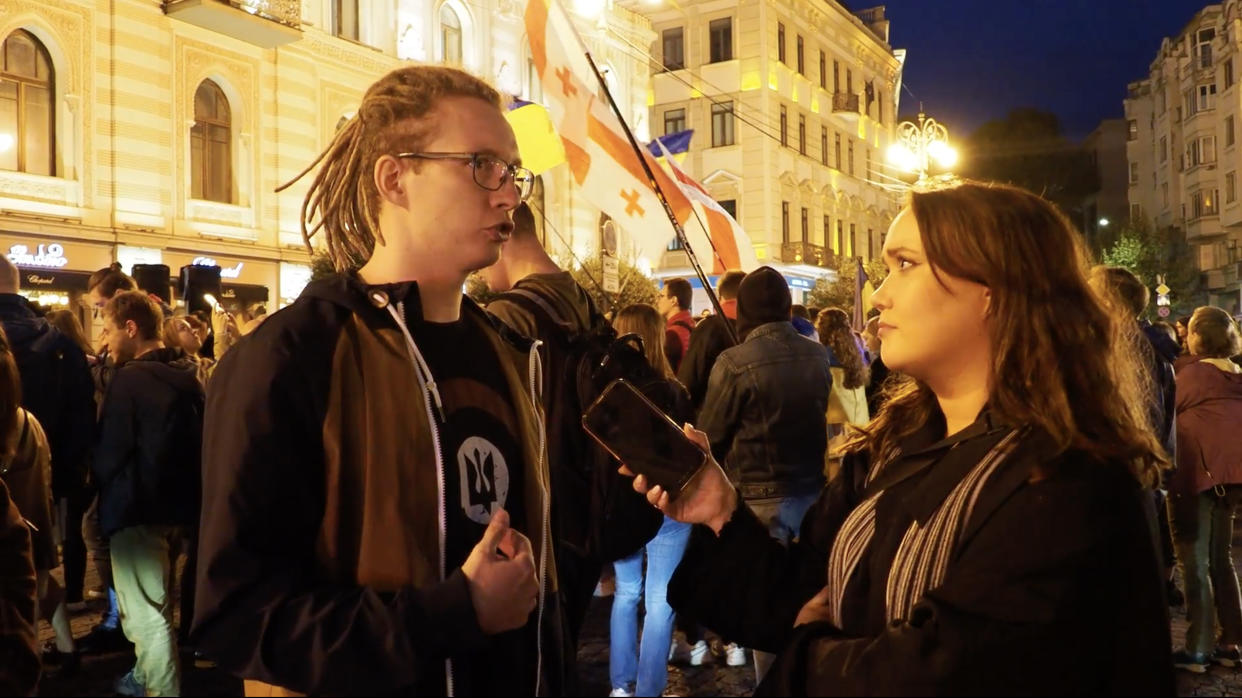
And this sentiment can be felt across Tbilisi. Ukrainian flags hang from balconies and windows, and antiwar graffiti can be spotted from street to street. Earlier this month, Parulava and other activists replaced street signs in the capital with signs written in Russian telling migrants to return home. It comes as a warning to new city dwellers that this former Soviet satellite is no longer under Russian rule.
But despite demands that the Georgian government do more to protect its citizens, the government has remained relatively uninvolved. Since the war was launched in February, Georgia’s politicians have been treading carefully with their aggressor neighbor.
The Kremlin’s “special operation” in Ukraine is a painful reminder of Georgia’s own recent history. It was only 14 years ago that the country bore the full brunt of Russia’s oppression.
In 2008, Russia launched a “defensive operation” against Georgia over two “breakaway” territories in the north. After just 12 days, Russia annexed one-fifth of Georgian territory, which included the regions of South Ossetia and Abkhazia. Hundreds of people were killed, and today more than 300,000 Georgians remain displaced after being forced from their homes during that conflict.
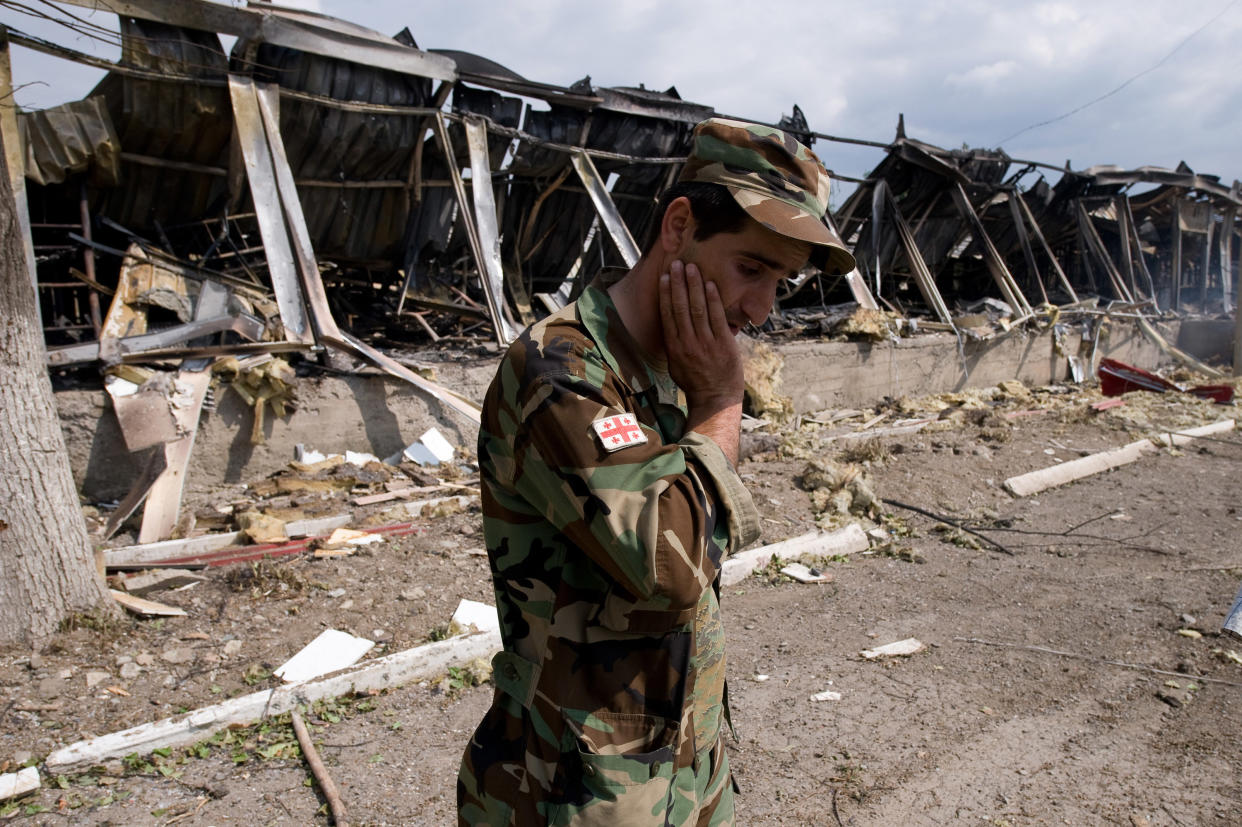
Zhana Odiashvili was just 14 when Russia began to bomb her town of Gori, about 8 miles from the border of South Ossetia. “[I have] very tragic and painful memories from 2008,” she told Yahoo News. “I was displaced from the town because it was under aerial attack. We had to flee to Tbilisi because it was a safer place at the time.”
Now 29, Odiashvili operates a walking tour in Gori, during which she raises awareness about the Russian aggression the town experienced. In parts of the town, made famous as the birthplace of Joseph Stalin, walls are sprayed with bullet holes from the conflict. Being so close to the disputed region of South Ossetia, Odiashvili and Gori residents are constantly reminded of what Russia is capable of. Even worse, there have been reports of Russia physically moving its border posts farther into Georgia, which the country’s security agency has called “illegal.”
But now Russians are flooding into Georgia — the country they terrorized a little more than a decade ago — to seek sanctuary. Fearing conscription, men have abandoned their lives in search of a new life.
Alexey, 19 years old, was one of these men. On Sept. 20, Alexey read about rumors online that Putin was planning to announce a mobilization. A history student, he was forced to desert his education in order to escape the war. With the help of some of his teachers, Alexey managed to fly to Tbilisi, where he plans on staying permanently.
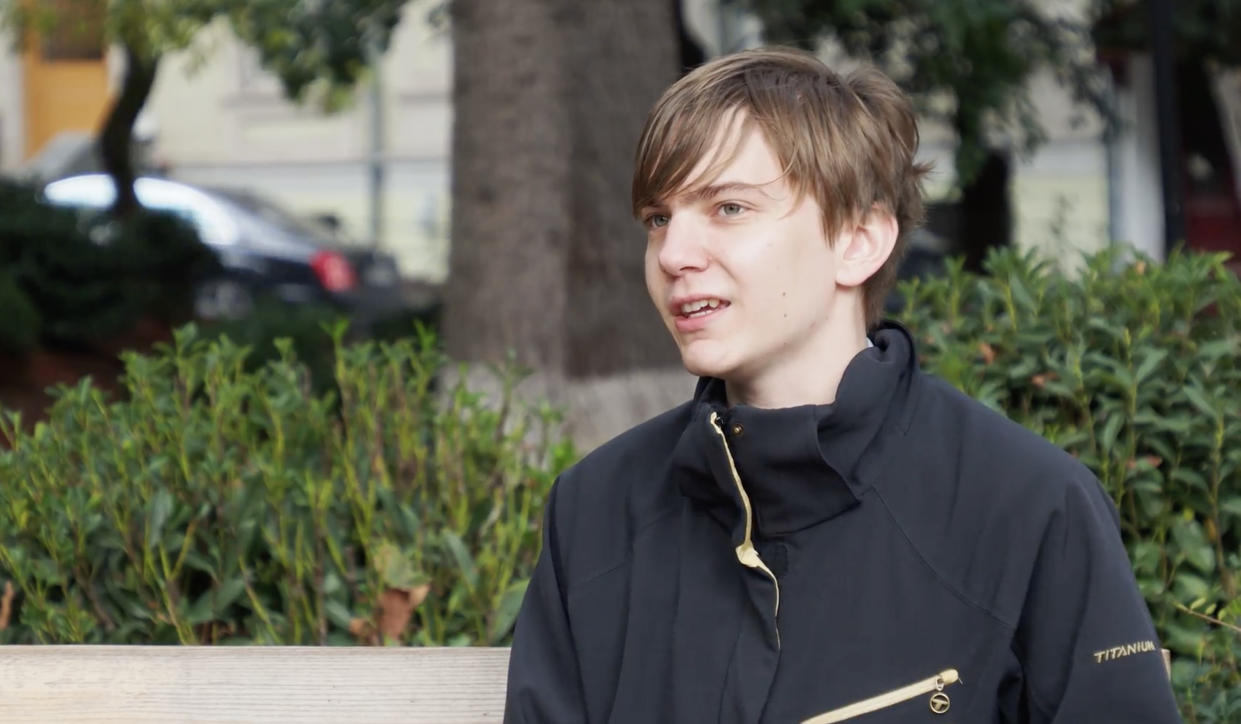
“I had originally planned to leave Russia in March, but there was still the issue of finances,” he told Yahoo News. “I was afraid of leaving my family and … my job. Additionally, there were rumors of people being arrested at the border.” These turned out to be more than just rumors. Last week, it was reported that over 1 million Russians had been banned by Russia's Federal Security Service from leaving the country.
Alexey, whose mother is Ukrainian and had family who lived there until March, said he had been scared for his life when mobilization was announced. “The mobilization put an end to any hope that there could be anything good in Russia.”
So can the Russians who are leaving Georgia be refugees? According to Odiashvili, no. “Right now it’s the Ukrainian side which is right, so these Russians are not refugees to me. They should be sent back to Russia in the hope they will take down Putin,” she said. “If not, they can go anywhere else, but not to Georgia.”


